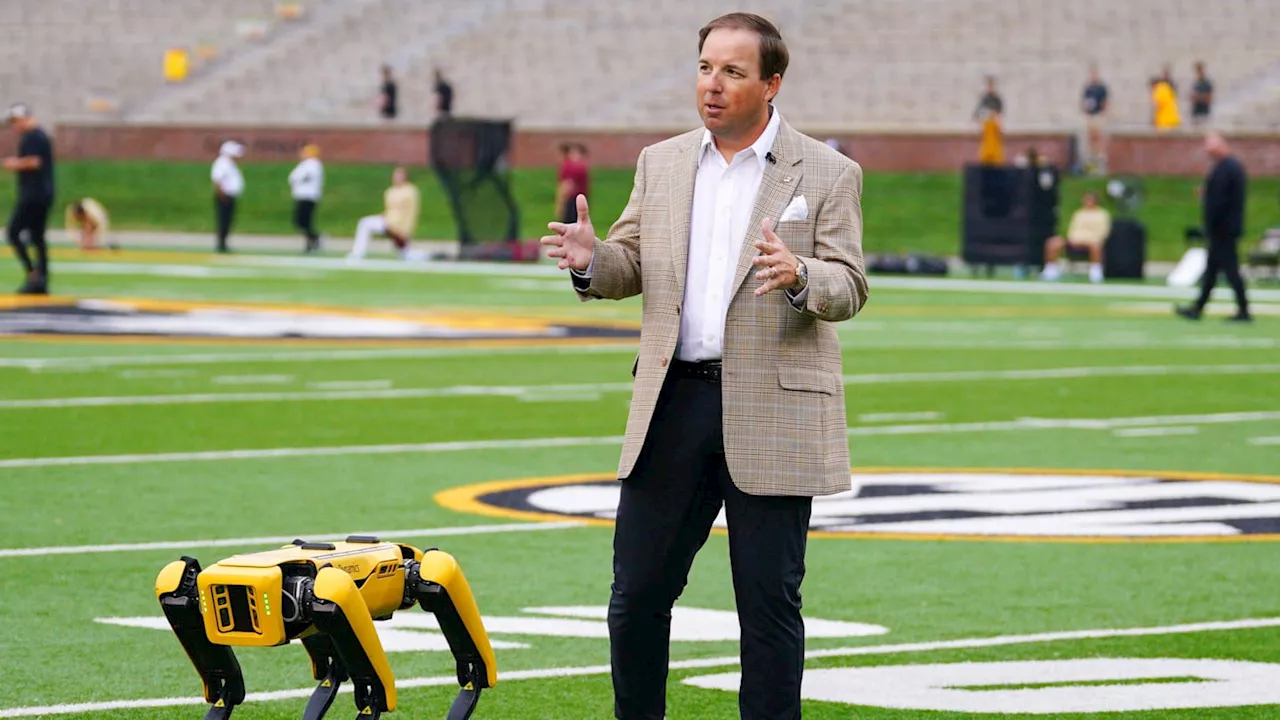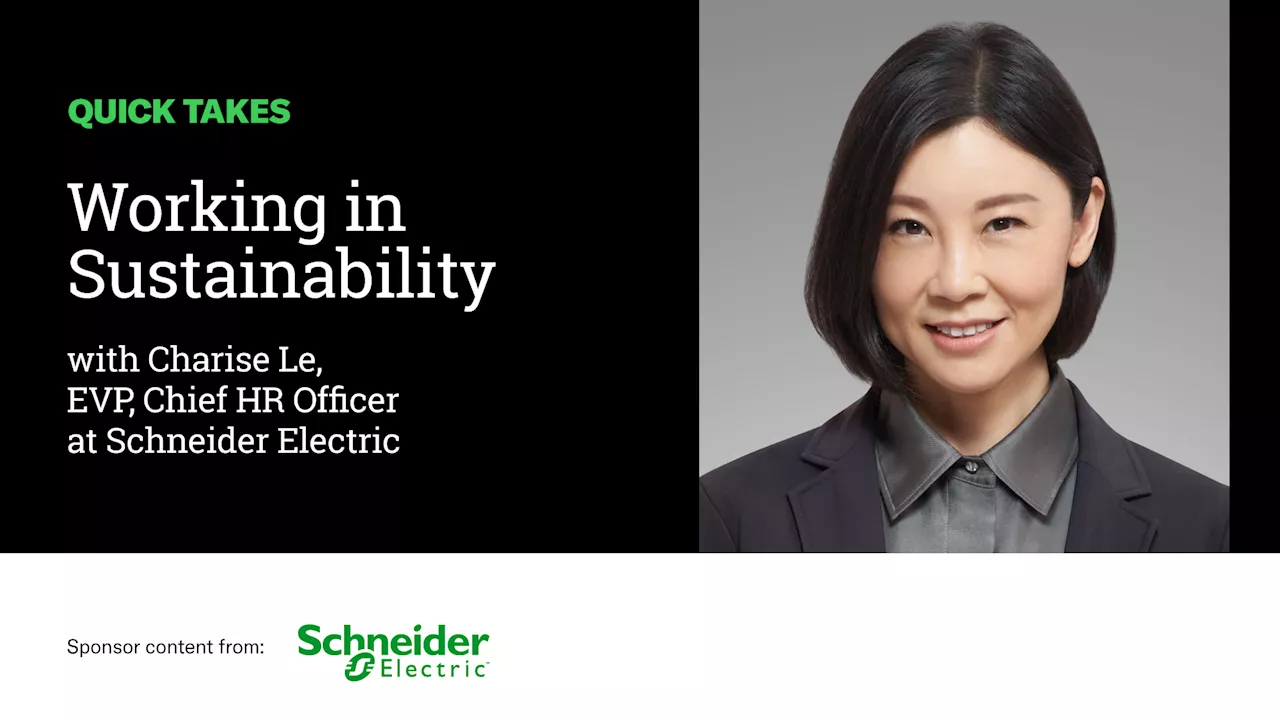This video discusses how businesses are changing their operations and workplace practices to meet the increasing demand for environmentally friendly jobs. It features Charise Le, executive vice president and chief human resources officer at Schneider Electric, who shares insights on how companies can attract and retain talent in the green sector.
Welcome to the HBR Video Quick Take. I’m Todd Pruzan, senior editor for research and special projects at Harvard Business Review. As the world sets its ambitious sustainability targets, companies are focusing on redefining and sometimes reinventing their business operations. Accelerating these efforts is also shaping the landscape of work.
We’re here today with Charise Le, executive vice president and chief human resources officer at Schneider Electric, to talk about how business leaders and their organizations are adapting, thriving, and driving sustainable progress in this transformative era. Charise, thanks so much for being with us.Charise, how are the growing efforts around decarbonization transforming the world of work?Yeah. I think as organizations across the globe look to accelerate their decarbonization efforts, the demand for climate-related jobs will only increase. Our study with Boston University found that deploying clean energy technologies in new and retrofitted buildings can create more than two million jobs. On the other side, workers’ preferences are changing, and people are more sustainability driven. And Deloitte found that almost 50% of self-assessed higher-income workers have considered switching jobs to work for a more sustainable company—so, great opportunities for organizations to reshape their people practices to build the connection.It does sound like a great opportunity. Charise, the growth in demand for green skills is outpacing the supply, according to some recent studies. How can companies help close the skills gap?I think companies have roles to play in two dimensions—one, to help your own people; and two, to help society. For your own people, I think the first thing to do is make your own sustainability commitment. Raise awareness among your people about the value of green skills. Thus, you create the sense of urgency and the desire to learn
Sustainability Green Skills Decarbonization Workforce Development Climate Change
United States Latest News, United States Headlines
Similar News:You can also read news stories similar to this one that we have collected from other news sources.
 Director's Journey on Adapting 'Dune'This transcript captures a conversation between two individuals, likely the director and an actor, discussing the process of adapting the complex and beloved 'Dune' novel into a film. They touch on themes of vulnerability, authenticity, the weight of audience expectations, and the collaborative nature of filmmaking.
Director's Journey on Adapting 'Dune'This transcript captures a conversation between two individuals, likely the director and an actor, discussing the process of adapting the complex and beloved 'Dune' novel into a film. They touch on themes of vulnerability, authenticity, the weight of audience expectations, and the collaborative nature of filmmaking.
Read more »
 Scottsdale Christmas tree farm adapting to drought, heat threatening supplyJustin Hobbs is the Weekend Meteorologist and an Impact Earth reporter at ABC15 Arizona.
Scottsdale Christmas tree farm adapting to drought, heat threatening supplyJustin Hobbs is the Weekend Meteorologist and an Impact Earth reporter at ABC15 Arizona.
Read more »
 Jaelon Darden adapting quickly to return role with Seattle SeahawksJaelon Darden didn't know the names of hardly any of his new teammates tasked to block for him as a kick returner in his first game with the Seattle Seahawks on Sunday.
Jaelon Darden adapting quickly to return role with Seattle SeahawksJaelon Darden didn't know the names of hardly any of his new teammates tasked to block for him as a kick returner in his first game with the Seattle Seahawks on Sunday.
Read more »
 No. 1 UCLA women's basketball adapting to being hunted as Bruins open Big Ten playThe No. 1 UCLA women's basketball team expects to be tested when it opens Big Ten play at Washington Sunday and is getting used to facing hostility.
No. 1 UCLA women's basketball adapting to being hunted as Bruins open Big Ten playThe No. 1 UCLA women's basketball team expects to be tested when it opens Big Ten play at Washington Sunday and is getting used to facing hostility.
Read more »
 College Football's New Landscape: Players and Programs Adapting to ChangesThe dynamics of college football are changing, allowing players to monetize their name, image, and likeness and switch schools more freely. These changes are influenced by coaching staff, academic factors, and financial support of college football programs.
College Football's New Landscape: Players and Programs Adapting to ChangesThe dynamics of college football are changing, allowing players to monetize their name, image, and likeness and switch schools more freely. These changes are influenced by coaching staff, academic factors, and financial support of college football programs.
Read more »
 Drinkwitz and Mizzou Football Adapting to Hectic New Recruiting ScenariosWhere a recruit will actually sign his name when the time comes can be unpredictable and adjusting and pivoting to fill roster holes is now more important than ever.
Drinkwitz and Mizzou Football Adapting to Hectic New Recruiting ScenariosWhere a recruit will actually sign his name when the time comes can be unpredictable and adjusting and pivoting to fill roster holes is now more important than ever.
Read more »
